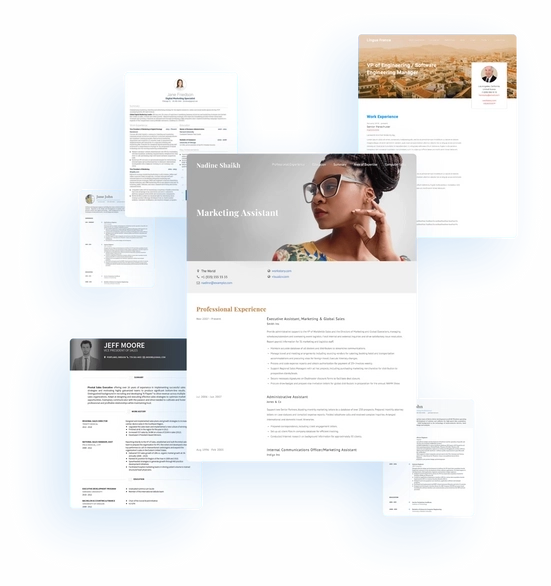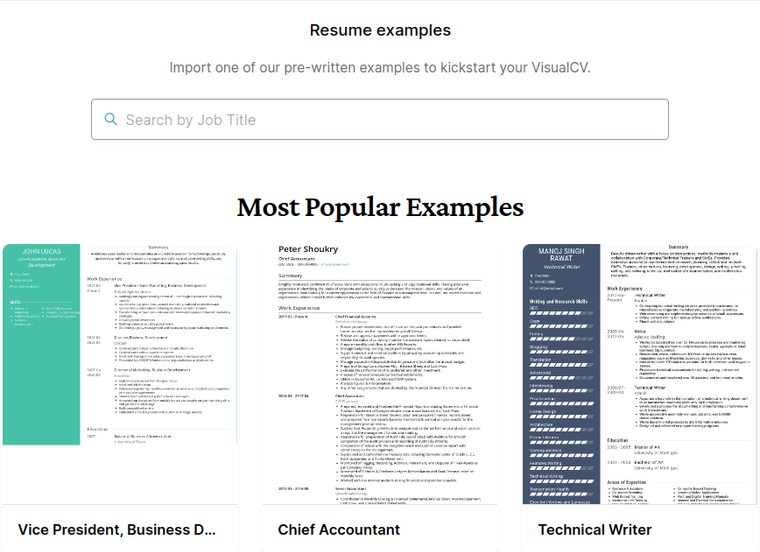
The most common technical interview questions (and how to answer them)

If you're applying for jobs in the tech sector, you will almost certainly have to answer some technical interview questions before long. Technical interview questions can be different from a more traditional job interview, so it’s important to know what to expect. Here are some of the type of questions you might face:
- In what programming language or languages are you proficient?
- How do you troubleshoot problems?
- What are the differences between A, AA, and AAA WCAG compliance?
- What are the pros and cons of working in an Agile workspace?
This article will teach you how you can prepare for technical interviews. It will include technical interview questions and answers, as well as some valuable technical interview tips.

What is a technical interview?
A technical interview is a common way for employers to assess candidates for science, engineering, or IT roles. They are interviews that test your technical knowledge and ability. Hiring managers will ask specific questions about the tools and technologies related to the position.
Technical interviews can take place in person, over the phone, or online. Their length can range from an hour to a whole day.
Technical interview questions are often a mix of standard interview questions, situational questions, problem-solving questions, and technical proficiency tests.
Hiring managers ask these kinds of questions to learn more about your technical skills and abilities. Additionally, hiring managers may also want to get an insight into your approach to problem-solving on the job and how your process will fit with the company culture.
The different types of technical interview questions
You can break down the most common technical interview questions into four main categories:
Behavioural questions
Behavioural questions are common in most types of job interview. Many technical interviews start with a set of general questions that hiring managers use to get a sense of the candidate and how they might fit inside the company culture.
An example of this type of question could be:
- Can you explain your role in the most recent project you worked on?
Situational questions
Hiring managers ask situational questions to get a sense of how you deal with common workplace problems or situations. Situational questions often come in the form of hypothetical situations that the candidate has to resolve. They may also ask for real examples of situations from your past.
An example of this type of question is:
- Tell me about a time that you made a significant error. What did you do to resolve it?
Technical education questions
Hiring managers ask about a candidate's education to understand how prepared they are for a specific role. Technical jobs are often very specialized, so employers need to know how each candidate's education, accomplishments, and qualifications are relevant.
An example of this type of question could be:
- How has your education prepared you for this position?
Technical questions
Hiring managers ask technical questions to assess your technical skills, knowledge, and experience. They do this to verify your qualifications, and to see how well you can communicate difficult technical concepts. Your answer can also give interviewers an idea of how you think and work.
An example of this type of question could be:
- What tool or language is the best choice for this project?


How to answer technical interview questions
Technical interviews can come in many shapes and sizes. When you are working out how to prepare for a technical interview, you'll need to think about the different methods and techniques you can use to come up with a satisfactory answer.
How to answer behavioural questions in a technical interview
One of the best and most reliable methods for answering behaviour-based technical interview questions is the STAR method. This is a simple framework that helps candidates tell a story about their work experience that will resonate with hiring managers.
STAR is an acronym that stands for:
Situation: Describe a circumstance or situation you were in Task: Explain your goal or responsibilities in the situation Action: Describe in detail what steps you took to resolve the situation Result: Detail the outcomes of your actions
Here's a question you could answer using the STAR method:
"Tell me about a time that you made a significant error and what you did to resolve it."
Coming up with a situation from your past that can be used as an example can be difficult. If you have to discuss a mistake, for example, it shouldn’t be too extreme or reflect poorly on your character. Stories about lying, gross negligence, or breaches of confidentiality will harm your chances of getting the job.
However, even if you have to talk about a mistake, you can show that you acted with integrity, took responsibility, and resolved the issue. An honest answer can really show your credibility. Errors happen in the workplace every day. We all make mistakes, but it's how we resolve them that is important.
Here is a possible answer:
Situation: I had just started working for an accounting software company a few weeks previously.
Task: I was updating code on our SaaS platform. However, I forgot about a line of code in our application. I had tested the change before deploying, but hadn't realized that it was connected to another part of the application in an unorthodox way.
My mistake caused a display error and slowed down our client's workflow. When the clients called up to ask what was happening, I immediately realized I was at fault.
Action: The first thing that I did was go to my manager. I explained to her that I had made an error in my latest update. The team pulled together to fix the error and quickly redeployed the application.
Result: After the incident, I was worried that management would think I wasn't up to the job. However, because my code was typically error-free, they said they understood and that it could have happened to anyone. New testing measures were put in place, and we avoided any more similar errors.”
How to answer other technical interview questions
While the STAR method is perfect for many questions, it is best used for open-ended behavioural or situational questions. Other technical interview questions may require something different.
So, if you are wondering how to prepare for technical interview questions that deal with skills, knowledge, or problem solving, here are a few technical interview tips to help you stand out from the crowd.
#1. Explain your reasoning
When answering a question, talk through the steps you take to come up with an answer. This will give employers an idea of how you solve problems and highlight your understanding of the relevant concepts. Even if you don’t arrive at the correct answer, your process may be enough to satisfy your interviewer.
Working out the problem in your head and then answering isn't the best way to impress your interviewer. Your reasoning can be just as important as the answer itself.
#2. Don't be afraid to ask for clarification
If you are asked a question, but you feel that you need more information to give the correct answer, don't be afraid to ask for clarification. It won't make you look like a weak candidate to ask for more information. If anything, it will show that you appreciate the complexity of the question. Additionally, it will help you answer correctly.
#3. Be honest
Sometimes you'll be asked a question that is outside the scope of your education or experience. You have two choices here: guess or admit that you don't know the answer.
Neither situation is ideal, but admitting you don't know the answer is usually the best choice. After all, we can't know everything. The best way to deal with this situation is to say that you're not sure about the answer, but go on to explain how you would find the information if you faced this situation on the job.
You can also consider writing down the question so you can research it after your interview. You could then reach out to the hiring manager afterwards with what you learned. Following up like this isn't something that you should do too often, but it might make a difference if you are neck and neck with another candidate.
Common technical interview questions and answers
In a technical interview, you'll be required to answer many types of questions about your skills, the tools you are familiar with, and your leadership skills.
Here are some common examples of technical interview questions and answers to help you impress your interviewer.
What programming languages are you proficient in?
The best way to answer this question is to mention all the different coding languages you're comfortable using. From there, choose the language that you work best with, and explain some of its advantages. Elaborating on the reasons you use particular tools is a great way to demonstrate your understanding.
Example Answer:
"Due to my work experience, I'm comfortable with several coding languages, like Visual Basic, C++, and Python. However, the language I've used for most of my professional career is JavaScript. I like JavaScript for its speed, simplicity, and its interoperability with other languages."
When would you choose to denormalize your database design?
Complex technical interview questions like this are a way for hiring managers to test your knowledge. The best answers will highlight your understanding of the relevant concepts, like advantages and disadvantages of a particular method, or the use-case for a specific tool. In this case, the question is about denormalization.
Denormalization is a technique that is used to optimize database design. However, it's best used to optimize the performances of specific queries. One disadvantage of denormalization is that it can result in the need for extra storage.
When answering this question, it's essential to explain the advantages and disadvantages of the process and detail when you might employ denormalization.
Example answer:
"Denormalization is a database design technique that is used to improve the lookup speed of specific queries. The way it achieves this is by adding redundant data to particular tables.
The process makes it quicker to find data, but the redundancies add more storage and affect the functionality of your database. If I was designing a database where many users needed to generate a report, I would consider denormalization to enhance speed and performance."
What is a SAN? Why is it used?
A hiring manager might ask technical interview questions like this one to test your knowledge of networks. Someone with IT experience should be able to answer this question, so use it as an opportunity to show hiring managers that you can easily explain technical concepts in simple terms.
Example answer:
"A SAN is a Storage Area Network. They are high-speed networks that give access to block-level storage. The SAN achieves high speeds by removing pressure from the Local Area Network by shifting traffic and storage devices onto a dedicated network.
SAN can be used to improve data security, increase scalability, and reduce LAN bandwidth issues."
What is Clickjacking?
If you're applying for a cybersecurity job, you will probably face some technical interview questions about IT security threats. These questions are designed to demonstrate your technical knowledge, as well as how up-to-date you are on different malicious activities that can affect information security. You should know about Clickjacking, as well as any other common security threats.
Example answer:
"Clickjacking is a type of cyber attack that tricks a user into clicking on a disguised or invisible web page element. It's also known as user interface redressing because it "redresses" the webpage's actual UI and redirects users towards various types of malware, like malicious pages, or captures sensitive information."
What are the main differences between A, AA, and AAA WCAG compliance?
Web Content Accessibility Guidelines are policies that user interface (UI) and web designers need to know about. Failure to meet these guidelines — which regulate web design for people living with disabilities — can lead to fines.
Hiring managers will ask questions about compliance protocols to see how much you understand about designing compliant websites and test your overall awareness of tech industry issues.
Example answer:
"WCAG is short for Web Content Accessibility Guidelines. These standards are used to help develop web pages that are accessible to everyone — including those living with disabilities.
The different ratings are used to grade how compliant a website is. Single-A is the bare minimum requirement that web pages, apps, and other kinds of documents should comply with.
Double-A is considered a good level of accessibility and includes compatibility with assistive technology.
Triple-A is the highest level of compliance. Websites should be legible, provide simplified versions of texts, and meet all the other guidelines of A and AA."
What online resources do you regularly use to help you with your job?
Hiring managers ask technical interview questions like these to test how interested and up-to-date the candidate is with the tech community. While many IT professionals use resources like GitHub and Stack Exchange, hiring managers might also be interested your involvement in more specialist spaces.
Depending on what role you are applying to, there may be specific publications, website sections, or even thought-leaders that you should name check. The main thing here is to appear passionate and eager to learn.
Example answer:
"I have an account on Github for my personal projects, but I also regularly browse Stack Exchange, Stack Overflow, and other forums. Additionally,I listen to topical technology podcasts when I drive to work, and I’m subscribed to several newsletters.
While I do keep up on industry news online, I think the best way to learn is with developer communities like Hackernoon. I'm very active there and have shared and learned a lot over the years."
Tell me about a challenging problem you and your team faced and how you resolved it
Technical interview questions like these are a way for hiring managers to understand how you work. A good answer will help convince them you have good problem-solving skills and highlight your teamwork, communication, and collaborative approaches.
Open-ended questions like this are great for the STAR technique that we highlighted earlier.
Example answer:
"My team and I had a problem with a project last year when our software solution didn't work. The platform was meant to simplify our accounts process; however, our orders weren't getting billed correctly once we installed it.
I liaised with our sales team, the third-party vendor, and the accounts receivable department to figure out the issue. The software solution couldn't capture some data that was required for billing. We realized it needed to be customized.
I met with sales and accounts receivable to see what they required. Then, I spoke to the vendor, and we negotiated the custom data fields we'd need for the process to work. This fix solved the issues.
The company is still using the software. Some of the other customizations we requested at the time have improved the efficiency of our billing process by 30%."
You realize a project is going to miss its deadline. What do you do?
This technical interview question strikes at the heart of something that many people in the tech industry face: tight deadlines. There are a few things that hiring managers will want to know about here, including your problem-solving skills, how you communicate, and how you might negotiate for the extra time and resources accomodate the delays.
Technical interview questions of this kind are also an opportunity to show that you appreciate that your work impacts others. Everyone is human, and sometimes deadlines get missed. But this question is an opportunity to show that you have resilience in the face of a crisis and that you never give up.
Example answer:
"In my first role as a developer, I was assigned a project that required building a new app. It was a fast-moving and busy team that wasn't too proactive about providing support unless asked. I was learning on the job and started struggling and running out of time.
I came to my boss and explained the situation. He understood immediately and admitted he'd been distracted by managing other projects.
He assigned another team member to work alongside me, and we got the app finished on time. The client was delighted, and my boss was happy I'd addressed the issue before it got out of control. I learned a valuable lesson that day to never be shy to ask for support."
How do you explain technical concepts to people without technical backgrounds? Give an example.
Tech companies are made up of lots of people with different backgrounds. Sales, marketing, and even management won't always have strong technical knowledge. However, they'll need to understand concepts and projects relevant to their work.
Practice taking technical, difficult-to-grasp concepts and describing them so that someone who doesn’t have your technical knowledge will understand them.
Technical interview questions of this type are a test of your communication skills and your ability to translate complex issues to others. Even if you haven’t had to communicate technical concepts in a professional setting, this is an important skill to have.
Example answer:
"I have a lot of practice explaining technical concepts from talking to my parents. They call me asking all sorts of questions about the internet and WiFi, TV, and other appliances around the house.
With my mother and with non-technical workmates, I tend to use analogies to help them visualize concepts. If that doesn't work, I look at introductory videos and see how they explain these topics. Then I take another run at explaining the idea."
What product have you worked on that you are most proud of?
Technical interview questions that ask about your past achievements are a good way for hiring managers to learn about your skills. Additionally, it can give them a sense of your working style and your ability to collaborate with a team.
This is an opportunity to really sell yourself as a great candidate. While humility has its place, sometimes you need to let an interviewer know what they'll be missing out on if they don't hire you.
And if you're going to talk about your achievements, it's a good idea to back it up with hard data.
Example answer:
"The project I’m proudest of was an automated allocation system for a busy courier business. The setup was fully manual, but the owners wanted to reduce overheads and increase efficiency with a computerized platform.
While many loosely similar systems had been built that dealt with single journeys, this courier company wanted something that could allocate multiple different ad-hoc parcels to be collected and dropped off at different times.
I pulled a vast amount of historic GPS and allocation data and extracted patterns to see what worked and why parcels were running late. I also built a grading system for the couriers that tiered their ability.
Once I built the new allocation system, efficiency improved by 25%, and the company saved more than $100,000 on staff overheads.”
What tools and strategies you use to meet goals and KPIs?
IT and tech involve project planning and testing. Hiring managers ask technical interview questions like these to see if you have used project management software and how experienced you are with meeting deadlines.
A good way to answer this question is to share your experience with project management tools. Additionally, it's a chance to show what strategies you use to meet your goals.
Example Answer:
"I've used the Productboard product management software in my last two positions. It's a great tool that plays a significant role in project delivery. It works as a central hub where our team can meet each morning and work out what tasks need to be completed for the day. It's also an opportunity for me to check if anyone needs anything.
I used Productboard to keep up to date on what's happening before the meetings, so I know what we'll need to do."

Written By
Ben Temple
Community Success Manager & CV Writing Expert
Ben is a writer, customer success manager and CV writing expert with over 5 years of experience helping job-seekers create their best careers. He believes in the importance of a great resume summary and the power of coffee.

The top hiring and human resource statistics for 2025, including data on AI resumes, job interviews, remote work, and recruiting.
January 1, 2025
Read Post

Community Success Manager & CV Writing Expert

For every open position there is a perfect resume, but no resume is perfect for every open position. Every job you apply to needs its own customized resume that is tailored for that specific job title and description. In this guide, we will outline the steps to customizing your resume for every application.
September 4, 2020
Read Post

Community Success Manager & CV Writing Expert

Learn how your resume can beat the applicant tracking system (ATS) with keywords and the right resume template.
February 7, 2022
Read Post

Community Success Manager & CV Writing Expert
Copyright ©2025 Workstory Inc.